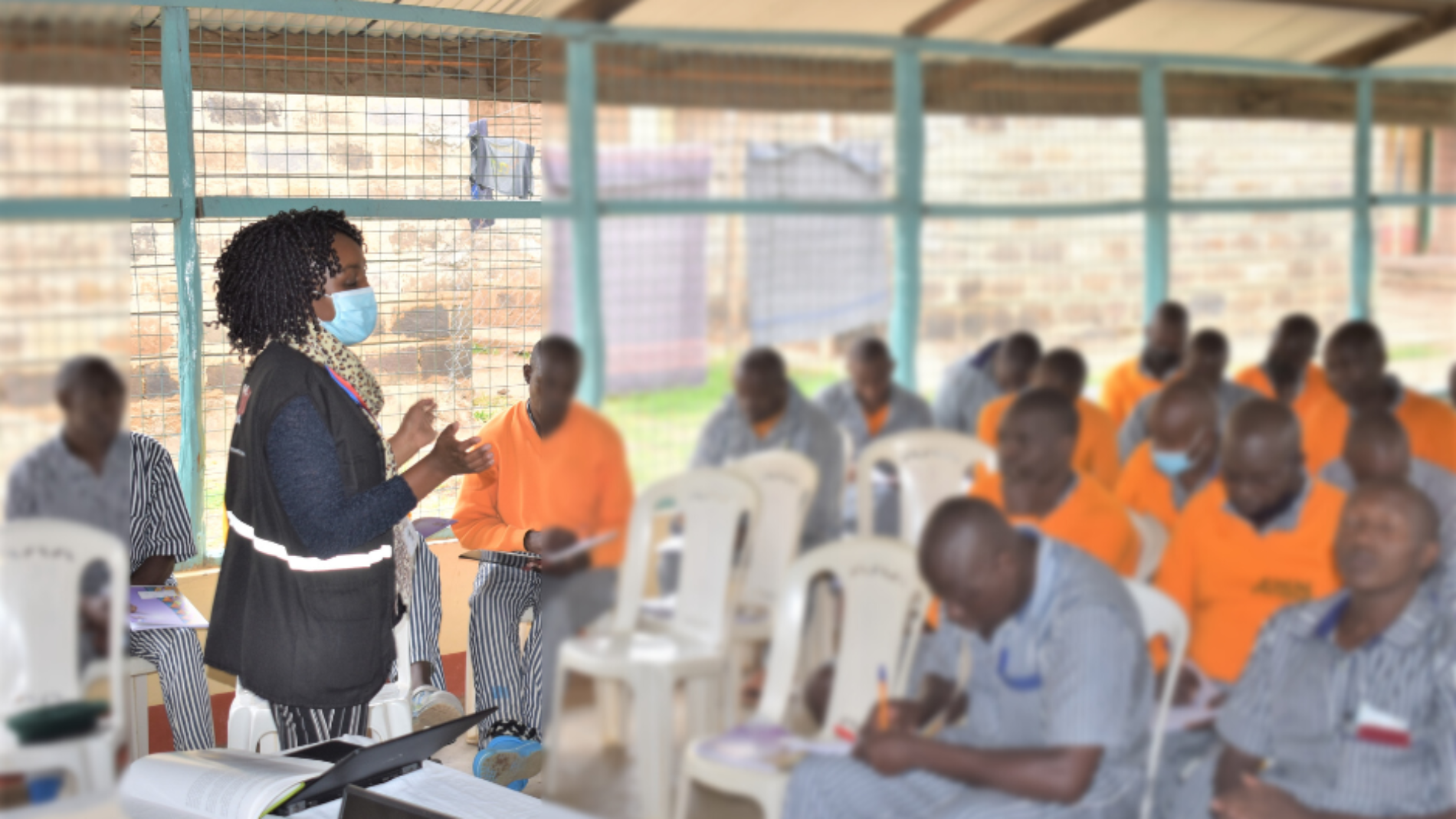
Celebrations at the Nairobi West Prison as 40 inmates graduated today as paralegals after a 2-week training under the Crime Si Poa, Access to Justice Program. The remand and convicted inmates have been awarded certificates after successfully completing the customized training aimed at equipping them with legal knowledge and skills to assist them as well as their colleagues in accessing justice.
“I am glad to be one of those graduating today. This not only gives us hope but also helps close the criminal justice gap. I feel like a lot needs to be done as far as crime awareness is concerned. Many inmates do not know which acts are considered criminal and which acts are not. Little effort has been put in place to ensure people get the knowledge on crime hence such initiatives as this are much needed in prisons, ” said an inmate (name concealed).
According to Sylvia Morwabe, Programs Director at Crime Si Poa, most inmates in Kenya do not have access to legal representation which adversely affects their trials. The training will thus help the inmates navigate the justice system better leading to fewer miscarriages of justice and wrongful convictions.
“Big congratulations to all graduates for successfully completing the set course. This has been an interactive class. With paralegal skills, the inmates will have an understanding of the law to ensure they get just and fair trials,” said Morwabe.
The training curated and conducted in partnership with the Law Clinic of Strathmore University covered key areas of the criminal justice system, including legal areas such as the trial process, essentials of a fair trial, law of evidence, appeals & reviews, amongst others.
“I appreciate Crime Si Poa for this initiative. There is great importance attached to how you present and conduct yourself while in court. Through the program, inmates have been equipped effectively in order to effectively handle their cases. We ask for more reading materials in order to advance this initiative in prison,” said Regional Commander, Henry Kisungu.
Speaking during the awarding ceremony, Deputy Public Prosecutor in the Office of Director of Public Prosecutions Ms.Emily Kamau, applauded the graduates for the milestone achieved in attaining legal know-how and encouraged them to continue with the pursuit to learn more.
“I have seen many people who have built successful careers having gone through prison. We know of Nelson Mandela among others. It, therefore, does not mean that this is the end, there is still a future for you all. ” She said.


















